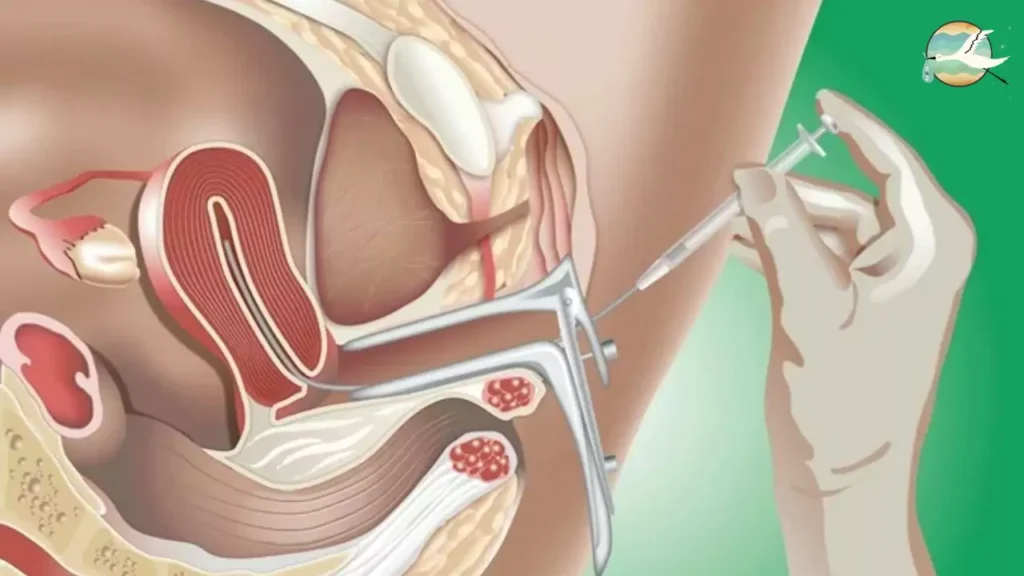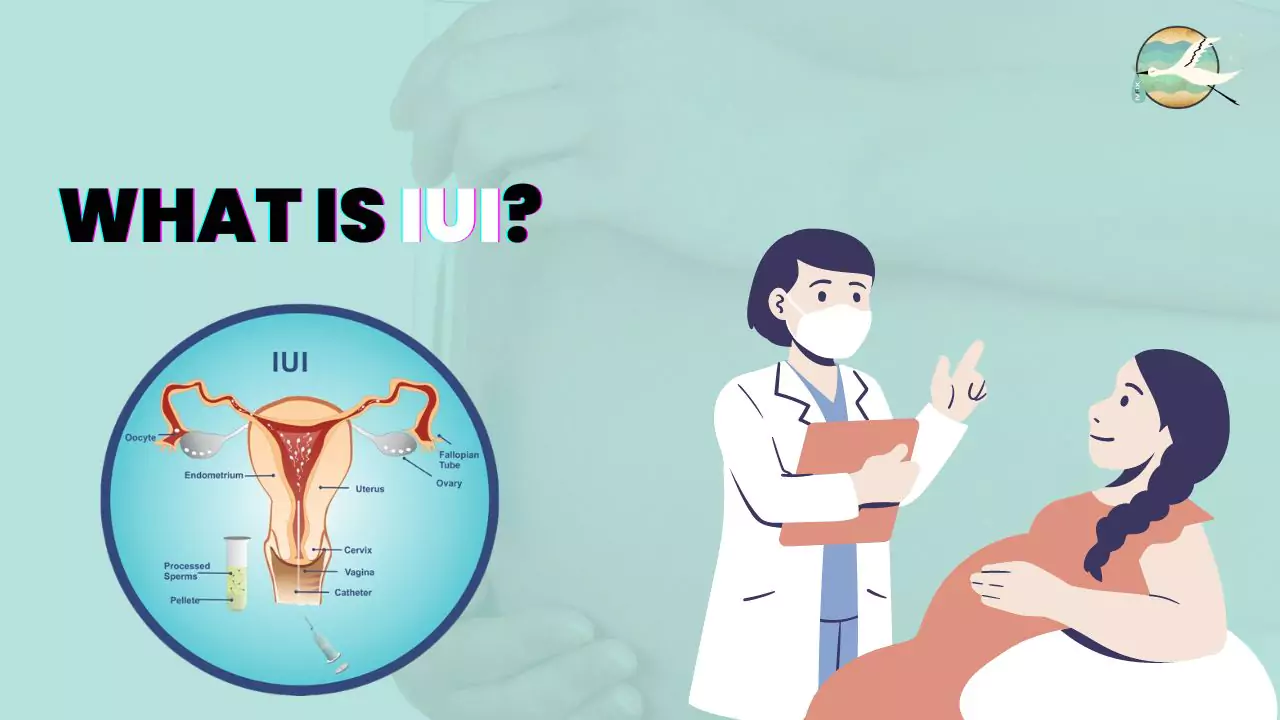Discover what is IUI (Intrauterine Insemination) in this comprehensive guide. Learn about the process, benefits, and success rates. Get all your questions answered!
In the world of fertility treatments, Intrauterine Insemination (IUI) has emerged as a popular and effective method for couples struggling to conceive. This assisted reproductive technique offers hope to many individuals and couples by increasing the chances of pregnancy. If you are curious about what is IUI and how it works, this article will provide you with an in-depth understanding of the process, its benefits, success rates, and frequently asked questions.
Table of Contents
What is IUI?
IUI, or intrauterine insemination, is a fertility procedure in which cleaned and ready sperm are put directly into a woman’s uterus during her ovulation phase. By shortening the distance between the sperm and the egg, the treatment seeks to increase the likelihood of fertilization. IUI raises the chance of pregnancy by improving the path for sperm to take to reach the fallopian tubes by avoiding the cervix.

How does IUI work?
IUI, or intrauterine insemination, is a medical term. Donor insemination, alternative insemination, and artificial insemination are other names for it. When you’re ovulating, IUI works by injecting sperm cells directly into your uterus, which brings the sperm and egg closer together. By reducing the time and distance sperm must travel, you can facilitate the fertilization of your egg.
You may take ovulation-stimulating fertility medications before the insemination procedure. Semen is taken from a donor or your partner. “Sperm washing” is the procedure used to extract concentrated amounts of healthy sperm from the semen.
Your doctor will then immediately insert the sperm into your uterus. If your egg is fertilized by sperm and then implants in the lining of your uterus, pregnancy results.
IUI is a straightforward, low-tech procedure that has the potential to be less expensive than other forms of fertility therapy. It increases your chances of getting pregnant, but since every person’s body is unique, there is no assurance that IUI will be successful.

Benefits of IUI
IUI is a popular choice among couples looking for fertility assistance because it has a number of benefits:
- Non-Invasive Procedure: IUI is a non-invasive process in contrast to more involved reproductive treatments like in vitro fertilization (IVF). Many people may find its lack of surgical interventions to be desirable.
- Cost-Effective: IUI is more affordable than other reproductive procedures, making it a more viable choice for couples who are on a tight budget.
- Increased Sperm Concentration: IUI enhances the concentration of sperm at the site of fertilization by injecting cleaned sperm directly into the uterus, increasing the likelihood that sperm will reach the egg.
- Fewer Side Effects: In comparison to more severe fertility treatments, IUI often has lower side effects since it uses fewer hormonal drugs.
- Suitable for Mild Fertility Issues: IUI is often recommended for couples facing mild fertility challenges, such as low sperm motility or cervical mucus issues.
How should I prepare for an IUI?

You might take fertility medications before IUI to help your eggs develop and become fertile. During ovulation, when your ovaries release an egg, your doctor will perform the insemination procedure. You may occasionally be administered ovulation-inducing hormones. For the best possible chance of success, they’ll determine precisely when you’re ovulating and prepared for the procedure.
A sample of semen is taken from you or your partner at home or in the doctor’s office. “Sperm washing” is a technique used to concentrate healthy sperm to prepare them for insemination. Additionally, sperm washing aids in the removal of chemicals in the semen that may cause reactions in your uterus and hinder pregnancy. When you use donor sperm from a sperm bank, the sperm bank typically sends “washed” and ready-for-IUI sperm to the doctor’s office.
During the IUI procedure, the doctor will insert a remarkably thin, flexible tube into your uterus. Using a tiny syringe, the sperm is directly injected into your uterus through the tube. Pregnancy happens when a sperm fertilizes an egg, which then implants itself in the lining of your uterus.
The insemination procedure is completed in just 5–10 minutes at your doctor’s office or a fertility clinic. You don’t need anesthesia, and it takes only a short while. Even though IUI is typically painless, some people experience mild cramping.
What is the cost of IUI?
How much IUI will cost you will depend on your insurance coverage and how much your doctor will charge. IUI typically costs less than other fertility procedures like IVF. Without insurance, the cost ranges generally between $300 and $1,000.
There are some states with laws requiring health insurance providers to pay some or all of the costs of infertility treatment if you meet certain criteria. However, many insurance plans don’t even cover the cost of fertility treatment.
Success Rates of IUI
The success rates of IUI can vary depending on several factors, including age, overall health, and the cause of infertility.
1. Age of the Woman: The success of IUI is significantly influenced by the woman’s age. When compared to older women, younger women typically have higher success rates.
2. Underlying Fertility Issues: Any underlying reproductive difficulties in either partner can impact the outcome of an IUI. The likelihood of pregnancy may be lowered by conditions including endometriosis, tubal obstructions, or severe sperm abnormalities.
3. Number of IUI Cycles: The number of IUI cycles a couple undergoes can impact success rates. Success may increase with multiple cycles.
4. Sperm Quality: The sperm used for the operation must be of high quality. The likelihood of successful fertilization is positively impacted by greater motility and improved morphology.
Also Read: How to Increase Sperm Count?: Expert Tips for Boosting Male Fertility 2023
FAQs about IUI
Q. Is IUI Painful?
No, The process of IUI is comparatively painless. During the procedure, some women may feel a minor discomfort akin to menstruation cramps.
Q. Can Single Women and Same-Sex Couples Opt for IUI?
Yes, IUI is not limited to heterosexual couples. Single women and same-sex couples can also benefit from this fertility treatment.
Q. How Long Does the IUI Procedure Take?
The IUI procedure itself usually takes only a few minutes. However, couples should plan to spend around two hours at the fertility clinic for the entire process, including preparation and observation.
Q. Is There Any Risk of Infection with IUI?
The risk of infection with IUI is minimal. Fertility clinics maintain strict hygiene protocols to minimize any chances of infection.
Q. Are There Any Preparations Required Before IUI?
The woman may be prescribed ovulation-stimulating medications to ensure the ovaries release an optimal number of eggs. Additionally, the male partner will need to provide a semen sample on the day of the procedure.
Q. Can Other Fertility Treatments Be Used in Combination with IUI?
Yes, depending on the specific fertility issues, IUI can be combined with other treatments such as ovulation induction or fertility medications.
Conclusion
IUI, or Intrauterine Insemination, is a promising fertility treatment that offers hope to couples struggling to conceive. It is a non-invasive and cost-effective procedure that can increase the chances of pregnancy. By understanding the IUI process, its benefits, and success rates, and answering common questions, individuals and couples can make informed decisions about their fertility journey.
With advances in medical technology and increasing awareness about fertility treatments, IUI continues to provide a pathway to parenthood for those facing fertility challenges. If you are considering IUI, consult with a qualified fertility specialist to determine if it is the right option for you.




